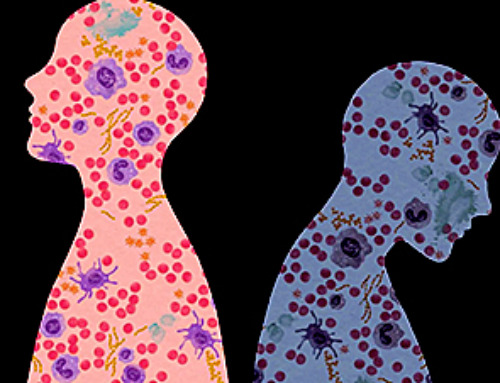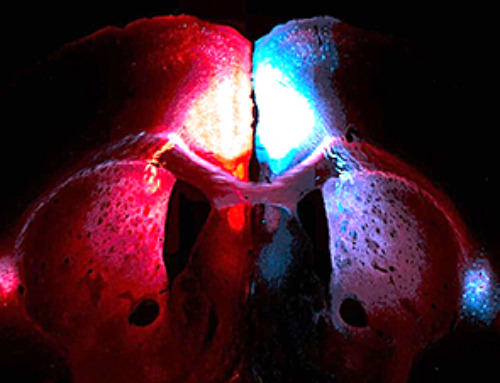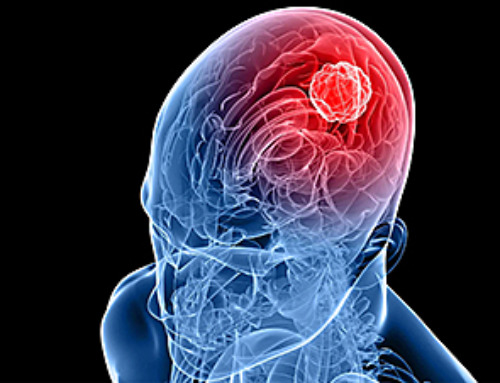Recent research conducted by the University of Oxford has found that a high proportion of SARS-CoV-2 infections in the general population lead to persistent infections lasting a month or more. The findings have been published in the journal Nature.
It has long been thought that prolonged COVID-19 infections in immunocompromised individuals may have been the source of the multiple new variants that arose during the coronavirus pandemic and seeded successive waves of infection, including the Alpha and Omicron variants. But until now, the prevalence of persistent COVID-19 infections in the general population and how the virus evolves in these situations remained unknown.
Study Methodology and Findings
To investigate this, the researchers used data from the Office for National Statistics Covid Infection Survey (ONS-CIS), which tested participants approximately monthly. Of the 90,000+ participants, 3,603 provided two or more positive samples between November 2020 to August 2022 where the virus was sequenced. Of these, 381 individuals tested positive for the same viral infection over a period of a month or longer. Within this group, 54 individuals had a persistent infection that lasted at least two months. The researchers estimate that between one in a thousand to one in 200 (0.1-0.5%) of all infections may become persistent, and last for at least 60 days.
In some cases, individuals remained infected with viral variants that had gone extinct in the general population. In contrast, the researchers found that reinfection with the same variant was very rare, likely due to the host developing immunity to that variant and the variant reducing in frequency to very low levels after a few months.
Insights into Viral Dynamics and Long-COVID
Of the 381 persistent infections, 65 had three or more PCR tests taken over the course of their infection. Most (82%) of these individuals demonstrated rebounding viral dynamics, experiencing high, then low, then high viral load dynamics. According to the researchers, this demonstrates that the virus can maintain the ability to actively replicate during prolonged infections.
In the study, people with persistent infections were 55% more likely to report having Long COVID symptoms more than 12 weeks since the start of the infection than people with more typical infections.
Certain individuals showed an extremely high number of mutations, including mutations that define new coronavirus variants, alter target sites for monoclonal antibodies, and introduce changes to the coronavirus spike protein. However, most individuals did not harbor a large number of mutations, suggesting that not every persistent infection will be a potential source for new concerning variants.
Co-lead author of the study Dr Mahan Ghafari (Pandemic Sciences Institute, Nuffield Department of Medicine, University of Oxford) said: 'Our observations highlight the continuing importance of community-based genomic surveillance both to monitor the emergence and spread of new variants, but also to gain a fundamental understanding of the natural history and evolution of novel pathogens and their clinical implications for patients.'
Co-lead author Dr Katrina Lythgoe (Department of Biology and Pandemic Sciences Institute, University of Oxford) said: 'Although the link between viral persistence and Long Covid may not be causal, these results suggest persistent infections could be contributing to the pathophysiology of Long Covid. Indeed, many other possible mechanisms have been suggested to contribute to Long Covid including inflammation, organ damage, and microthrombosis.'
Reference: "Prevalence of persistent SARS-CoV-2 in a large community surveillance study" by Mahan Ghafari, Matthew Hall, Tanya Golubchik, Daniel Ayoubkhani, Thomas House, George MacIntyre-Cockett, Helen R. Fryer, Laura Thomson, Anel Nurtay, Steven A. Kemp, Luca Ferretti, David Buck, Angie Green, Amy Trebes, Paolo Piazza, Lorne J. Lonie, Ruth Studley, Emma Rourke, Darren L. Smith, Matthew Bashton, Andrew Nelson, Matthew Crown, Clare McCann, Gregory R. Young, Rui Andre Nunes dos Santos, Zack Richards, Mohammad Adnan Tariq, Roberto Cahuantzi, Wellcome Sanger Institute COVID-19 Surveillance Team, COVID-19 Infection Survey Group, The COVID-19 Genomics UK (COG-UK) Consortium, Jeff Barrett, Christophe Fraser, David Bonsall, Ann Sarah Walker and Katrina Lythgoe, 21 February 2024, Nature.
DOI: 10.1038/s41586-024-07029-4
News
Blindness Breakthrough? This Snail Regrows Eyes in 30 Days
A snail that regrows its eyes may hold the genetic clues to restoring human sight. Human eyes are intricate organs that cannot regrow once damaged. Surprisingly, they share key structural features with the eyes [...]
This Is Why the Same Virus Hits People So Differently
Scientists have mapped how genetics and life experiences leave lasting epigenetic marks on immune cells. The discovery helps explain why people respond so differently to the same infections and could lead to more personalized [...]
Rejuvenating neurons restores learning and memory in mice
EPFL scientists report that briefly switching on three “reprogramming” genes in a small set of memory-trace neurons restored memory in aged mice and in mouse models of Alzheimer’s disease to level of healthy young [...]
New book from Nanoappsmedical Inc. – Global Health Care Equivalency
A new book by Frank Boehm, NanoappsMedical Inc. Founder. This groundbreaking volume explores the vision of a Global Health Care Equivalency (GHCE) system powered by artificial intelligence and quantum computing technologies, operating on secure [...]
New Molecule Blocks Deadliest Brain Cancer at Its Genetic Root
Researchers have identified a molecule that disrupts a critical gene in glioblastoma. Scientists at the UVA Comprehensive Cancer Center say they have found a small molecule that can shut down a gene tied to glioblastoma, a [...]
Scientists Finally Solve a 30-Year-Old Cancer Mystery Hidden in Rye Pollen
Nearly 30 years after rye pollen molecules were shown to slow tumor growth in animals, scientists have finally determined their exact three-dimensional structures. Nearly 30 years ago, researchers noticed something surprising in rye pollen: [...]
NanoMedical Brain/Cloud Interface – Explorations and Implications. A new book from Frank Boehm
New book from Frank Boehm, NanoappsMedical Inc Founder: This book explores the future hypothetical possibility that the cerebral cortex of the human brain might be seamlessly, safely, and securely connected with the Cloud via [...]
How lipid nanoparticles carrying vaccines release their cargo
A study from FAU has shown that lipid nanoparticles restructure their membrane significantly after being absorbed into a cell and ending up in an acidic environment. Vaccines and other medicines are often packed in [...]
New book from NanoappsMedical Inc – Molecular Manufacturing: The Future of Nanomedicine
This book explores the revolutionary potential of atomically precise manufacturing technologies to transform global healthcare, as well as practically every other sector across society. This forward-thinking volume examines how envisaged Factory@Home systems might enable the cost-effective [...]
A Virus Designed in the Lab Could Help Defeat Antibiotic Resistance
Scientists can now design bacteria-killing viruses from DNA, opening a faster path to fighting superbugs. Bacteriophages have been used as treatments for bacterial infections for more than a century. Interest in these viruses is rising [...]
Sleep Deprivation Triggers a Strange Brain Cleanup
When you don’t sleep enough, your brain may clean itself at the exact moment you need it to think. Most people recognize the sensation. After a night of inadequate sleep, staying focused becomes harder [...]
Lab-grown corticospinal neurons offer new models for ALS and spinal injuries
Researchers have developed a way to grow a highly specialized subset of brain nerve cells that are involved in motor neuron disease and damaged in spinal injuries. Their study, published today in eLife as the final [...]
Urgent warning over deadly ‘brain swelling’ virus amid fears it could spread globally
Airports across Asia have been put on high alert after India confirmed two cases of the deadly Nipah virus in the state of West Bengal over the past month. Thailand, Nepal and Vietnam are among the [...]
This Vaccine Stops Bird Flu Before It Reaches the Lungs
A new nasal spray vaccine could stop bird flu at the door — blocking infection, reducing spread, and helping head off the next pandemic. Since first appearing in the United States in 2014, H5N1 [...]
These two viruses may become the next public health threats, scientists say
Two emerging pathogens with animal origins—influenza D virus and canine coronavirus—have so far been quietly flying under the radar, but researchers warn conditions are ripe for the viruses to spread more widely among humans. [...]
COVID-19 viral fragments shown to target and kill specific immune cells
COVID-19 viral fragments shown to target and kill specific immune cells in UCLA-led study Clues about extreme cases and omicron’s effects come from a cross-disciplinary international research team New research shows that after the [...]





















